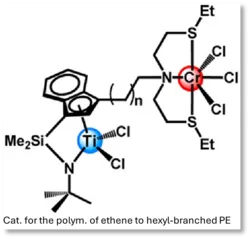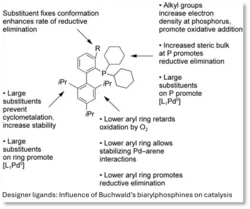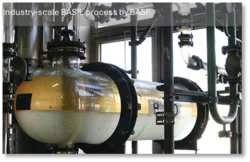Design Principles for Homogeneous Catalysts
Summer term 2025, Study Course Chemistry M.Sc., Minor Subject “Catalysis”
WHAT IS THE LECTURE ABOUT?
In few areas of chemistry is the pursuit of perfection and control over molecular architecture as evident as in the design of homogeneous catalysts. Metals and ligands, along with their steric and electronic properties, are meticulously tuned to serve a specific purpose - catalyzing an organic reaction.
The goal of this lecture is to provide you with an understanding of the exceedingly complex interplay between ligand tuning, activity, selectivity, and recyclability. Selected examples from current research and the chemical industry will be employed to illustrate this concept.
WHAT ARE THE CONTENTS?
We illustrate the impact of catalyst design through the transformation of small molecules such as CO, CO2, short-chain olefins, and cross-coupling reactions. We extensively examine the role of respective ligands and their impact on regio- and stereoselectivity.
Additionally, we address the often overlooked question in homogeneous catalysis regarding the fate of the catalyst after the reaction. Furthermore, we present industrial examples demonstrating that reusability and economic viability are achievable in molecular catalysis.
WHO IS DELIVERING THE LECTURE?
WHAT IS THE SCHEDULE?
Starting April 25th 2025, it takes place on Mondays, 9:00 – 11:30 am in the seminar room CH56210.
YOU ARE INTERESTED?
For more details, you are welcome to reach out via e-mail. Additional information is also available in the TUM Online module handbook and in moodle.


